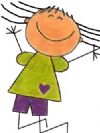|
ESL Forum:
Techniques and methods
in Language Teaching
Games, activities
and teaching ideas
Grammar and
Linguistics
Teaching material
Concerning
worksheets
Concerning
powerpoints
Concerning online
exercises
Make suggestions,
report errors
Ask for help
Message board
|
ESL forum >
Ask for help > Ideas for a lesson for holocaust memorial day? Anyone?
Ideas for a lesson for holocaust memorial day? Anyone?
|

MarionG

|
Ideas for a lesson for holocaust memorial day? Anyone?
|
|
Hi everybody,
First of all, thank you all for sharing your work on this site! It is not only very useful - for worksheets, for ideas, approaches etc. - it is also really inspirning to see that there is such a large community of people willing to share and care.......I �m honored to be a small part of it!!
I have a question or rather, a request for help/ideas...
I am now on a two week holiday (pesach). My first lesson after the holiday with my 6th graders is what is on my mind.... That first lesson will be the day before holocaust memorial day here in Israel (which is of course a serious issue here). I would like to do something on the subject - maybe Anna Frank, maybe human rights maybe straight world war two, I don �t know.
The lesson will be a double one, i.e. an hour and 20 minutes. The kids aren �t easy (normal 12 year olds I suppose ;) . We just started past tense. does anyone have an idea, other then what is posted already on this site; maybe a good link for materials on this subject that would fit their level........
All suggestions are appreciated!! |
3 Apr 2009
|
|
|
|

magdita

|
|
You could give them the song Imagine by John Lennon which is really nice. I downloaded it from this site but then added some activities as questions like: "What could you do to foster peace? Are you a dreamer? etc. It �s a really nice song and it worked very well with my students. Good luck |
3 Apr 2009
|
|
|

Gosia Knupp

|
MARION,
I did a whole unit on Anne Frank using excerpts from her diary. One of my worksheets on this site deals with basic rights taken away from Jews just before WWII. There is an entry in Anne �s diary about it. Before the students read it, they have to think of things important to their lives at the moment (TV, bike, movies, school friends) and then they see that these simple pleasures and basic rights would have been taken away from them if they were a Jew during WWII. Good luck with your lesson.
(I �m not sure if my worksheet downloaded completely, it �s supposed to have a pie chart with eight spaces for their ideas)
|
3 Apr 2009
|
|
|

aftab57

|
|
The Internet is full of resources for teaching the Holocaust. here are a few links which may prove useful.
|
3 Apr 2009
|
|
|

eng789

|
|
Hi Marion,
I might develop this page for my classes.
|
3 Apr 2009
|
|
|

gilorit

|
|
Hi Marion
Here you have a full lesson on Anna Frank
http://www.famouspeoplelessons.com/a/anne_frank.html
I have some other ws but I don �t upload them because they are non mine.
Contact me if you want them
Orit |
3 Apr 2009
|
|
|

debbiem

|
|
Hi,
Check this site out.
Debbie |
3 Apr 2009
|
|
|

eng789

|
|
Thanks for some great ideas. |
3 Apr 2009
|
|
|

demeuter

|
|
You �ll find documentation, pictures, audio material, virtual visit, the whole history of the deportation.
The Jewish Museum of Deportation and Resistance (JMDR) is situated in the building which was previously known as the Kazerne Dossin in Mechelen, Belgium. It was here that, in 1942, the Nazis established SS-Sammellager Mecheln (SS-Collection Camp Mechelen).
This place was the departure point for a deportation without return. In the years between 1942 and 1944, 24.916 Jews and 351 Gypsies were transported to the camps in the east. Two thirds were gassed upon arrival. At the time of the liberation only 1.221 people had survived.
The Kazerne Dossin was therefore, literally, �the waiting room for death�. The underlying theme of the Museum is to cover this dark period in our history.
Fragment of the site :
Verordnungen (Decrees)
As from 28th October 1942 the Nazis drew up a separate statute for Jews comprising of 17 discriminatory measures. Henceforth the Jews were excluded from public life.
To begin with Jews were obliged to register themselves in their local Judenregister. 56.000 complied. The Gestapo drew on this information to prepare a filing card system with the names and addresses of all the Jews who registered. This was followed by a decree restricting the Jewish presence in certain social, economic and professional activities. Their ID cards were stamped with the word Juif or Jood (Jew). Jews were no longer allowed to visit public places such as swimming pools, parks, theaters, cinemas etc. They were forbidden to use either 1st or 2nd class on the public transport system. Jewish children were no longer permitted to attend school.

|
3 Apr 2009
|
|
|

eng789

|
|
We have to be careful with how much information we give when we are talking to young kids (12 year olds).
If it is my first year with a class ( grade 7) I usually read them a few chapters from Daniel �s story and we discuss it. Or I tell them about some of the things that my parent experienced before, during and after the war. Then I show them some pictures from my trip with my parents to Poland to look for signs of my roots there.
It �s a sensitive topic and you need to gage your class as to whether or not you can deal with the topic in class as an ESL teacher.
|
3 Apr 2009
|
|
|

MarionG

|
|
Thanks to all for your replies - aftab57, the material about standing up to hatred is really wonderful, inspiring, a bit geared to english speakers but I hope to work with it at some point, or suggest it to their teacher to work with it in their native tongue!-
eng789 you are so right in reminding me that they might be too young to deal with this subject in depth. I suddenly realized that our school deals with the holocaust only very superficially all of the primary school years. Maybe the english class isn �t the right place to open it too much....I am happy I asked for input here before moving on it too much
Thanks again |
3 Apr 2009
|
|
|















